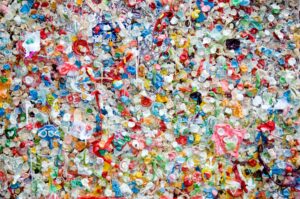EIA urges governments to use ‘scientific evidence’ in developing UN plastics treaty
Backed by 183 experts from 37 research institutions, the message is clear: any agreement must be based on fact.
The United Nations Environment Assembly is due to meet in Nairobi later this month, with the body convening from 28th February. Ahead of that date, the Environment Investigation Agency (EIA) has launched its ‘Scientists’ Declaration’ to push policymakers towards a treaty based on evidence, rather than the interests of industries and lobbyists.
Alongside recommendations not to ignore scientific evidence, signees also identify a number of shortcomings in current commitments. For example, focusing on waste management and domestic recycling schemes for single use plastics means many other issues are being missed.
Collectively, the group has recommended introducing cap on global plastic production and phasing output down where necessary, standardising and reducing the range of plastics, associated products and delivery systems available, developing universal monitoring and reporting methods, and rolling out compliance and enforcement measures.
The announcement comes amid concerns plastic production is continuing to increase. Around 367m tonnes of virgin material, 99% of which come from fossil fuels, are made annually, up from just 2m in 1950, with the figure expected to hit 1bn tonnes by 2050. Meanwhile, plastic leakage into the environment is expected to triple between 2016 and 2040. Estimates suggest plastic pollution costs the world $6-$19bn each year.
‘Humankind has already exceeded the safe operating space for chemical pollution. This declaration has been created by leaders in this scientific field – they know all there currently is to know about plastics and its impacts on our environment, health and wellbeing,’ said EIA Ocean Campaigner, Tom Gammage. ‘Our climate and biodiversity will be affected, for better or worse, depending on what decisions are made in Nairobi.’
‘The international science tells us that the priority responses must be the minimisation of global plastics production and the systemic design of toxic-free, just, generative and zero waste economies,’ added Trisia Farrelly, Associate Professor at Massey University, New Zealand. ‘What we need now is the political will for a globally coordinated response commensurate with the evidence and recommendations of the global scientific community if we are to prevent further irreversible contamination.’
In related news, Germany’s Alfred Wegener Institute published research proving that microplastic pollution in the world’s oceans will continue to rise for decades, even if no more plastic is allowed to enter seas.
Image credit: Marc Newberry
















